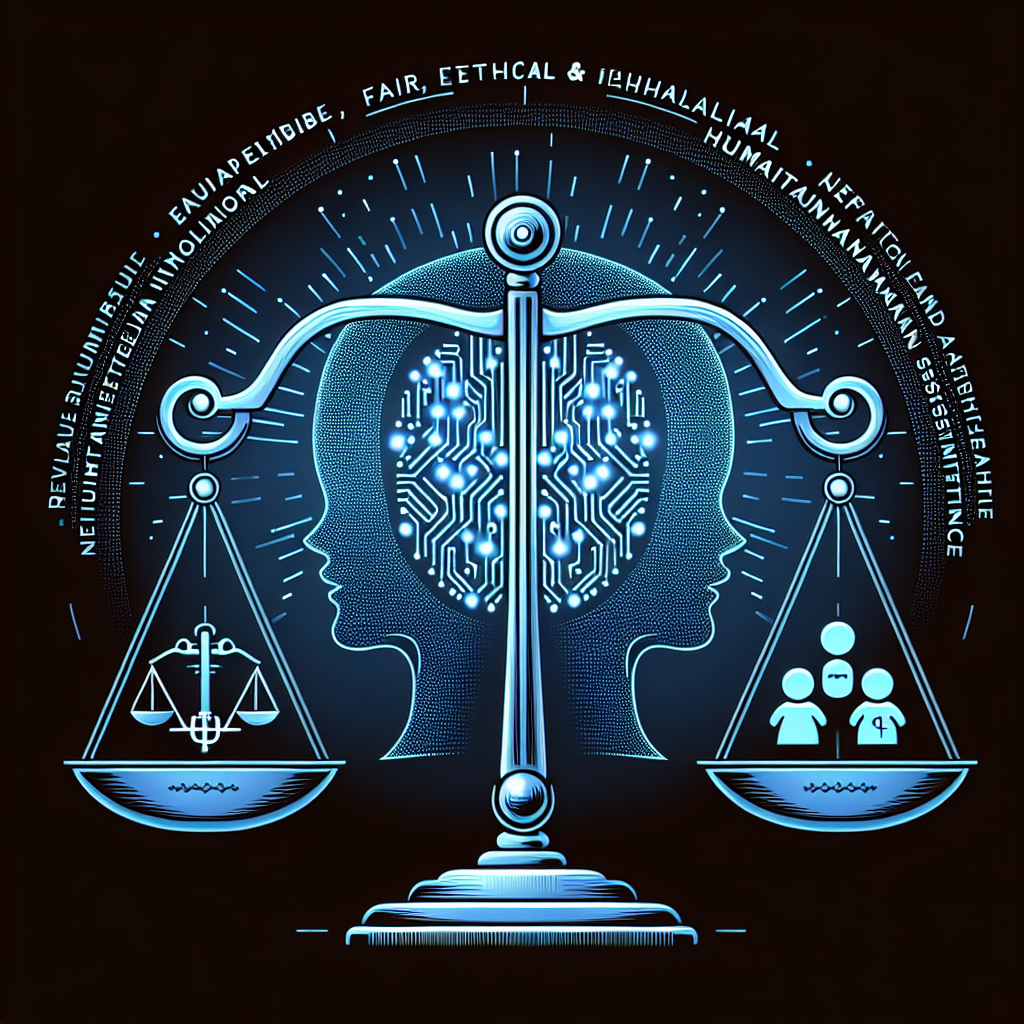In recent years, Artificial Intelligence (AI) has been increasingly utilized in humanitarian response efforts to aid in various aspects of disaster relief, resource allocation, and decision-making processes. While the use of AI in these contexts can offer numerous benefits, such as increased efficiency and accuracy, it also raises ethical concerns related to fairness and equity. Ensuring that AI technologies are developed and deployed in a way that upholds ethical principles is crucial in order to prevent potential harm and promote positive outcomes for those affected by crises.
Ethical AI in humanitarian response involves considering and addressing various ethical issues that may arise when using AI technologies in this context. These issues include concerns related to bias, transparency, accountability, privacy, and consent. In order to ensure that AI systems are fair and equitable, it is important to develop guidelines and frameworks that prioritize ethical considerations and promote responsible use of AI technologies in humanitarian response efforts.
One of the key ethical issues in the use of AI in humanitarian response is the potential for bias in AI algorithms. Bias can arise in AI systems when the data used to train the algorithms is skewed or unrepresentative of the population being served. This can lead to discriminatory outcomes, where certain groups are disadvantaged or marginalized by the AI system. In order to address bias in AI systems, it is important to carefully consider the data used to train the algorithms, as well as to implement mechanisms for monitoring and mitigating bias in the decision-making process.
Transparency and accountability are also important ethical considerations in the use of AI in humanitarian response. It is crucial that AI systems are transparent in their decision-making processes and that the algorithms used are accountable for the outcomes they produce. This requires ensuring that AI systems are explainable and that the decision-making process is understandable and auditable. Additionally, it is important to establish mechanisms for holding AI systems accountable for their actions and ensuring that they are used responsibly and ethically.
Privacy and consent are other key ethical considerations in the use of AI in humanitarian response. AI systems often rely on large amounts of data to make decisions, and it is important to ensure that this data is collected and used in a way that respects individuals’ privacy rights and obtains their informed consent. This may involve implementing data protection measures, such as anonymization and encryption, as well as obtaining explicit consent from individuals before using their data in AI systems.
In order to ensure that AI technologies are developed and deployed in an ethical manner, it is important to establish guidelines and frameworks that promote fairness and equity in humanitarian response efforts. This may involve developing ethical codes of conduct for AI developers and users, as well as implementing mechanisms for monitoring and evaluating the ethical impact of AI systems. Additionally, it is important to engage with stakeholders, including affected communities, policymakers, and humanitarian organizations, in the development and implementation of ethical AI guidelines in order to ensure that they reflect the values and priorities of those being served.
Frequently Asked Questions (FAQs):
Q: How can bias be addressed in AI algorithms used in humanitarian response?
A: Bias in AI algorithms can be addressed by carefully considering the data used to train the algorithms and implementing mechanisms for monitoring and mitigating bias in the decision-making process. This may involve conducting bias audits, using diverse and representative data sets, and implementing fairness-aware algorithms.
Q: What are some ways to ensure transparency and accountability in AI systems used in humanitarian response?
A: Transparency and accountability in AI systems can be ensured by making the decision-making process explainable and auditable, as well as establishing mechanisms for holding AI systems accountable for their actions. This may involve implementing transparency measures, such as algorithmic impact assessments, and establishing oversight mechanisms to monitor the ethical impact of AI systems.
Q: How can privacy and consent be protected in the use of AI in humanitarian response?
A: Privacy and consent in the use of AI in humanitarian response can be protected by implementing data protection measures, such as anonymization and encryption, as well as obtaining explicit consent from individuals before using their data in AI systems. This may involve developing privacy policies and procedures to ensure that individuals’ data rights are respected.
Q: What are some best practices for ensuring fairness and equity in AI technologies used in humanitarian response?
A: Some best practices for ensuring fairness and equity in AI technologies used in humanitarian response include developing ethical codes of conduct for AI developers and users, engaging with stakeholders to gather input and feedback, and implementing mechanisms for monitoring and evaluating the ethical impact of AI systems. Additionally, it is important to prioritize diversity and inclusion in the development and deployment of AI technologies to ensure that they are fair and equitable for all individuals and communities.

